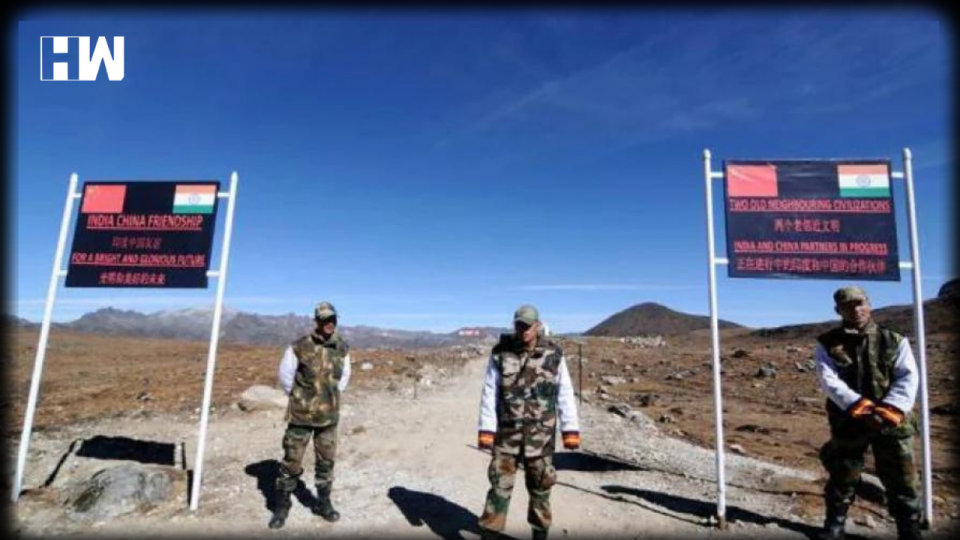Ladakh : The latest round of talks between Indian Army Commanders and Chinese Military Commanders over the standoff in Ladakh were held on Sunday. The Indian Army said that the Chinese side was not “agreeable” and “could not provide any forward-looking proposals.” The meeting’s results were not leading to resolution.
The talks began around 10:30am on Sunday at Moldo and concluded at about 7pm, a defence official said. “During the meeting, the Indian side made constructive suggestions for resolving the remaining areas but the Chinese side was not agreeable and also could not provide any forward-looking proposals. The meeting thus did not result in resolution of the remaining areas,” an army statement said.
“The two sides have agreed to maintain communications and also to maintain stability on the ground. It is our expectation that the Chinese side will take into account the overall perspective of bilateral relations and will work towards early resolution of the remaining issues while fully abiding by bilateral agreements and protocols,” it added.
China too indicated the meeting was a failure with a statement from the Chinese military’s Western Theater Command saying, “India insists on unreasonable and unrealistic demands, adding difficulties to the negotiations.”
India had pressed for an early disengagement of troops in the remaining friction points in eastern Ladakh at the 13th round of military talks with China that lasted for around eight-and-half hours on Sunday.
A major focus of the Corps Commander-level talks on the Chinese side of the Chushul-Moldo border point in eastern Ladakh was to complete the stalled disengagement at Hot Springs area known as Patrolling Point 15 (PP-15), news agency PTI reported.
The Indian side was led by the Army’sLeh based 14 Corps Commander Lt Gen P.G.K. Menon. Details on the outcome of talks were not immediately available. The meeting took place over two months after the last round of negotiations that resulted in the disengagement of troops from Gogra (Patrol Point-17A).
In addition to the overall disengagement and de-escalation, the two sides had also agreed to work out new protocols for patrolling to ensure such instances do not occur again.
Since the standoff began in May last year, the two sides have held a series of talks at different levels, political, diplomatic and military, and as part of agreements reached have undertaken disengagement from both sides of Pangong Tso in February and the Patrolling Point 17 at Gogra area in August.
In Eastern Ladakh, India and China have two mutually agreed disputed areas, Trig Heights and Demchok, and 10 areas of differing perception. As per reports officials said since the stand off last year, additional five friction points have emerged. These include Km 120 in Galwan area, Patrolling Point (PP) 15 and PP17 and Rechin La and Rezang La on the South Bank of Pangong Tso.
While Demchok is one of the two mutually agreed disputed areas in Eastern Ladakh, Depsang is one of the eight friction points in the area. In Demchok where there are claims in the Charding La area, China has set up tents on this side of Charding nala.
Officials said while an agreement for resolving Hot Springs is within reach, Demchok and Depsang are legacy issues and are tough to resolve.
Ahead of the talks, speaking at an event on Saturday Army Chief Gen Manoj Naravane noted that it was a matter of concern that the large-scale build-up has occurred and continues to be in place, and to sustain that kind of a build-up, there has been an equal amount of infrastructure development on the Chinese side.
Stating that if they continue to stay there through the second winter, it “definitely mean that we will be in a kind of Line of Control (LoC) situation though not an active LoC as is there on the western front,” Gen Naravane added, “So, it means that they (China) are there to stay. We are keeping a close watch on all these developments, but if they are there to stay, we are there to stay too.”
As an independent media platform, we do not take advertisements from governments and corporate houses. It is you, our readers, who have supported us on our journey to do honest and unbiased journalism. Please contribute, so that we can continue to do the same in future.

